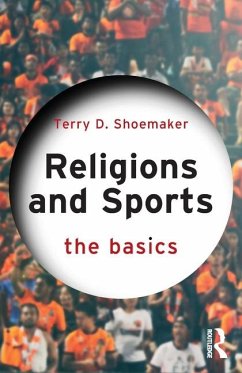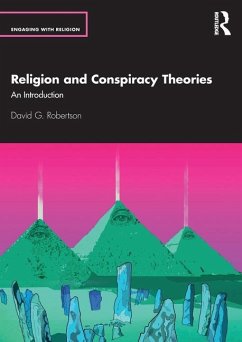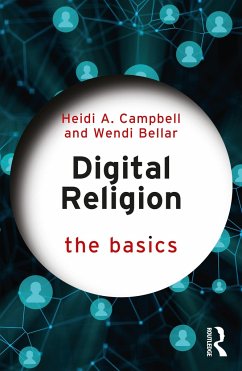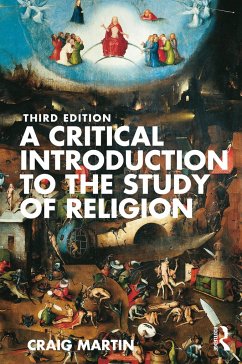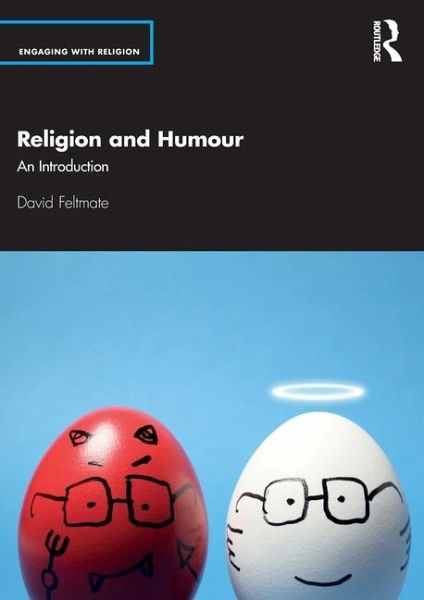
Religion and Humour
An Introduction
Versandkostenfrei!
Versandfertig in 6-10 Tagen
41,99 €
inkl. MwSt.
Weitere Ausgaben:

PAYBACK Punkte
21 °P sammeln!
This timely and lively introduction to exploring the intersection of religion and humour evaluates existing scholarship and methodologies within the field, arguing for a culturally critical approach to the study.Hinged on a qualitative sociological framework, this book asks questions about the construction, presentation, and purpose of humour in religious contexts. It is broken down by theoretical approach, with chapters covering:a "comparative religions" approach;a theological approach;how social sciences offer us useful tools for research; anda review of existing theoretical models.As the fi...
This timely and lively introduction to exploring the intersection of religion and humour evaluates existing scholarship and methodologies within the field, arguing for a culturally critical approach to the study.
Hinged on a qualitative sociological framework, this book asks questions about the construction, presentation, and purpose of humour in religious contexts. It is broken down by theoretical approach, with chapters covering:
a "comparative religions" approach;a theological approach;how social sciences offer us useful tools for research; anda review of existing theoretical models.
As the first volume to introduce the field of religion and humour, this engaging book is essential reading for students approaching the topic for the first time, and for anyone with an interest in related fields such as religion and popular culture and humour studies.
Hinged on a qualitative sociological framework, this book asks questions about the construction, presentation, and purpose of humour in religious contexts. It is broken down by theoretical approach, with chapters covering:
a "comparative religions" approach;a theological approach;how social sciences offer us useful tools for research; anda review of existing theoretical models.
As the first volume to introduce the field of religion and humour, this engaging book is essential reading for students approaching the topic for the first time, and for anyone with an interest in related fields such as religion and popular culture and humour studies.







